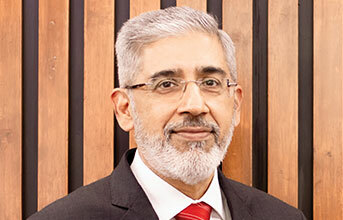
Can you provide an overview of Amada India and its role within the global operations of Amada Corporation?
Amada India, established in 2000, is a 100 per cent subsidiary of Amada Corporation, a Japanese company. Amada Corporation is a global leader in manufacturing sheet metal fabrication machines and various other metalworking machinery. Amada India focuses on direct sales and service, emphasising after-sales service support.
How does Amada prioritise after-sales service, and what initiatives have been taken to support customers in India?
Amada believes in direct sales and service to customers, and we are one of the first companies to start direct sales and service after-sales service for sheet metal machinery in India. With a strong service support reputation, the company prioritises resolving customer issues promptly. Amada established a technical centre and vocational centre in Bangalore in 2014 to support the market. This centre serves as an educational hub, providing training to operators and programmers while also demonstrating the latest technologies through live machine demonstrations.
Amada actively measures and captures CO2 emission data for each product, showcasing a commitment to environmental sustainability. Could you share insights into Amada's approach to environmental sustainability, especially in terms of reducing carbon footprints?
Amada has become the first company in Japan's machine tool industry to participate in the ‘RE100' global environmental initiative. The company has transitioned all its power supplies across bases in Japan to rely entirely on renewable energy, marking a significant commitment to sustainability. Our newly introduced eco-friendly products firmly endorse these commitments.
• Machines equipped with the new NC equipment ‘AMNC 4ie' that includes a display of the CO2 emissions.
• New fibre laser cutting machines with CO2 emissions reduced by 65 per cent (compared to representative products in 2013)
• New press brakes with electric servos that realise an oil-free drive shaft.
How does Amada approach the upskilling and reskilling of operators in India, especially those accustomed to conventional machinery?
Amada places a strong emphasis on education and training for operators, ensuring they can adapt to new technologies seamlessly. The CNC controllers on Amada machines are designed to be user-friendly, allowing even less skilled or educated operators to operate the machines smoothly. The company actively engages in upskilling initiatives to keep operators abreast of technological advancements.
Could you share insights into the customer base in India, including the average number of machines sold annually across product lines?
Amada typically sells approximately 250 to 300 machines per year in India, primarily focusing on three main segments: punching, bending, and laser machines. The customer base spans various industries involved in sheet metal fabrication, with over 4,500 machines currently operational in India.


























